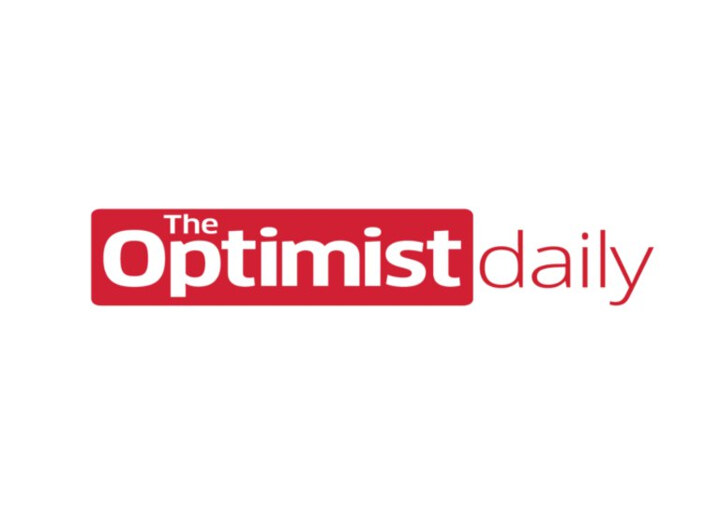Does self-refereeing work in sports? It does in Ultimate Frisbee, where the players call their own game. “The authority of a man with a whistle disempowers the players.”
In the searing heat of the Dubai high noon, the Dutch team is playing against the Philippines in the last pool-play match of the World Championships of Beach Ultimate (WCBU). The game is close, and the tall Dutch are having trouble stopping the nimble and fleet-footed attacks of the Filipinos. They are behind, 8–10, in a match that goes up to 11. The winner goes to the quarterfinals. The Filipinos attack: a long pass to the end zone, where they want to score. The Dutch reserve players on the bench yell encouragement to defender Sanne Leufkens, hoping she can catch the disc as it flies in her di-rection.
This is the match that the ten men and seven women of the Dutch national team have been training for over the past year. At the gym; in rain, snow and wind on the beach at Zandvoort; and in preparation tournaments abroad. The players all have regular jobs or studies, and Ultimate Frisbee is only a hobby for them, but they spend all their free time on it. And it costs a lot of money. Preparing and participating in this tournament costs almost €45,000 ($51,000) for the team, and this is all paid for by the players themselves. Aside from a medal and a bottle of champagne, the only prize to be gained in Dubai is honor.
And just as there is no prize money, there are also no referees in this tournament. In Ultimate, as the game is called in short, the players themselves are expected to know and abide by the game’s rules. The basic premise of this so-called spirit system is that players do not intentionally break any of the rules. For this reason, no red or yellow cards are waved about, no penalties are given, and there are no clock violations. If a player makes a mistake anyway, for example by pushing an opponent while running to catch the disc, the aggrieved party will address the issue. If the trespasser admits to the foul, they continue the game from the point at which it was stopped. If the alleged trespasser is not aware of any wrongdoing, they talk about it some more, exchanging viewpoints. If they still can’t come to an agreement, the game is restarted from the point before the alleged foul occurred.
Tim van Ommen, spirit captain of the Dutch team, is a big fan of self-officiating. Players who are given responsibility, he says, are much more likely to act responsibly. “The fact that there is no referee is a large part of the reason that I play Ultimate,” he says. “The authority of a man with a whistle disempowers players. In Ultimate, you feel like you have your own control over a fair course of play.” Van Ommen feels that it brings out the best in players. “A referee often changes a match into a battle over who can influence the referee most. Players try to see how much they can get away with and end up making tactical transgressions.”
The matches at the WCBU generally are played respectfully. The Russian and American ladies who are battling one another in the very exciting final stop play now and then for a brief discussion. For example, an American player impressively tilts forward to pluck the disc out of the air high above her while barely keeping her toes within the lines of the end zone. She thinks she has been successful and is already celebrating the point, but her Russian opponent thinks she stepped out of bounds. After a brief discussion they still disagree, and the decision is made to send the disc back to the person who threw it. The spectators and the other players show their appreciation for the controlled and respectful interaction with a round of applause. It presents a striking contrast with many a soccer match, where audiences whistle at referees and players alike, and grown men throw themselves around the penalty zone like divas to fake a foul.
Although the self-officiating of Ultimate Frisbee is unique in the sports world, off the playing field it is considered completely normal for people to interact and deal with one another without the intercession of an authority. “People in general tend to find a solution together to fix any conflict that arises,” says professor of socio-legal studies Marc Hertogh, at the University of Groningen, in the Netherlands. “Only 5 percent of arguments are battled out in legal court.” And that’s a good thing, too, says the sociologist, because going to court in most cases brings about an end to the relationship between the parties involved.
Hertogh is of the opinion that finding a solution together, in sports as well as in other areas of life, leads to healthier mutual relationships and more sustainable solutions that both parties can be content with. Judging by the atmosphere in Dubai, self-officiating promotes mutual respect. Opponents compliment each other on good plays, and the reserve players on the sidelines wish their opponents good luck when the game starts.
Could this same ethos be realized in other sports? Would soccer survive without a referee? Could it possibly be a way to end the ridiculous Schwalbes (what Americans call flops) and sneaky elbow thrusts? Sports philosopher Ivo van Hilvoorde, of the VU University, in Amsterdam, thinks that reciprocal conflict management could improve the atmosphere in other sports. “A lot of frustration and aggression on the field comes from the disappointment concerning losing or discontent about a card or a penalty,” he says. “When there is no referee to blame for these things, and you are forced to enter into discussion with your opponent, you learn to deal with disappointment in a different way.”
Hertogh reckons that a soccer competition without referees is possible, because the same teams often play each other. When people have to depend on one another, it creates what the sociologist says is an important precondition for the success of an anti-authoritarian system. Naturally, in such a setting people are more inclined to be concerned about each other’s well-being. Hertogh cites the Frisian village of Makkinga, in the Netherlands, where 15 years ago all traffic signs were removed so as to put an end to the chaotic and sometimes downright dangerous situations that were occurring on the roads there. It resulted in an unexpectedly huge success. Lacking an authoritative presence, people paid attention to each other again and took care of each other.
But elsewhere in the Netherlands, an opposite trend is taking place. In response to the death of soccer linesman Richard Nieuwenhuizen, kicked to death by aggressive players in 2012, the Dutch soccer association, KNVB, has granted the referee more power. He can now issue time penalties or send misbehaving players to reeducation classes, and clubs whose players consistently cross the line can be disqualified from competitions. Hertogh doubts that this is the right approach to take: “I think what we need to do is make the referee less important. Give players more responsibility so that playing according to the rules is no longer something the players can outsource to the referee and only be confronted with when the whistle blows.” Van Hilvoorde agrees that responsibility for and involvement with the rules of the game are crucial for fair play. “Research shows that soccer players who also referee games behave better as players.”
Both researchers emphasize that self-officiating and fair play work only if sports organizations make these concepts a high priority. Ultimate Frisbee has developed an extensive system to support it. Participants in tournaments have to take an online exam to prove their knowledge of the rules. And after every match, the competing teams meet to discuss the scores, strategies and fair play. Everyone then assesses their opponents’ conduct using fixed criteria that are the embodiment of the Spirit of the Game. How well has the opponent applied the rules? How many fouls did the team commit? Did participants control their negative emotions during the game? Did they communicate quietly and with respect? The scores are published, and at each tournament there are prizes not only for the winning team but also for the Most Spirited team. Many Frisbee players experience spirit as the foundation of their sport and are proud of it.
And yet the emphasis on fair play does not diminish the competitiveness of the game, states spirit captain Van Ommen. “A good spirit score means you are playing the game by the rules, but more important, of course, is that you perform as the best within those rules, and that you win.”
And a good performance is just what the Dutch players are working hard to deliver in the match against the Philippines. When the disc flies from the hands of the Philippines offense through the air to the end zone, Leufkens does succeed in plucking it out of the air with an athletic leap, and hope is renewed on the Dutch side. They are ready to attack and recover from their 9–10 position.
Well, that’s what Leufkens and her team members thought, anyway. The Philippines’ offensive player, who dived for the disc at the same time, is of the opinion that he had it in his hands first. The two cannot reach an agreement, and the disc goes back to the Filipino who threw it. With a few simple passes, the Philippines scores the winning point. The Netherlands’ chance of reaching the quarterfinals evaporates.
The moment leaves a sour taste for the Dutch team. In their dejection, they discuss the spirit of the Philippines team, and in the category of fair-mindedness they all vote 1 out of 4. Although this incident reveals the problems inherent in self-officiating, the realization that referees don’t judge all plays correctly, either, offers some consolation. In the end, it is these types of moments that are the biggest test for a player’s spirit. The ultimate goal is to remain in control despite disappointment and to assume at all times the honest intention of the other party.
Marieke Buijs, a science writer, also prefers to write and play Frisbee without a referee.












